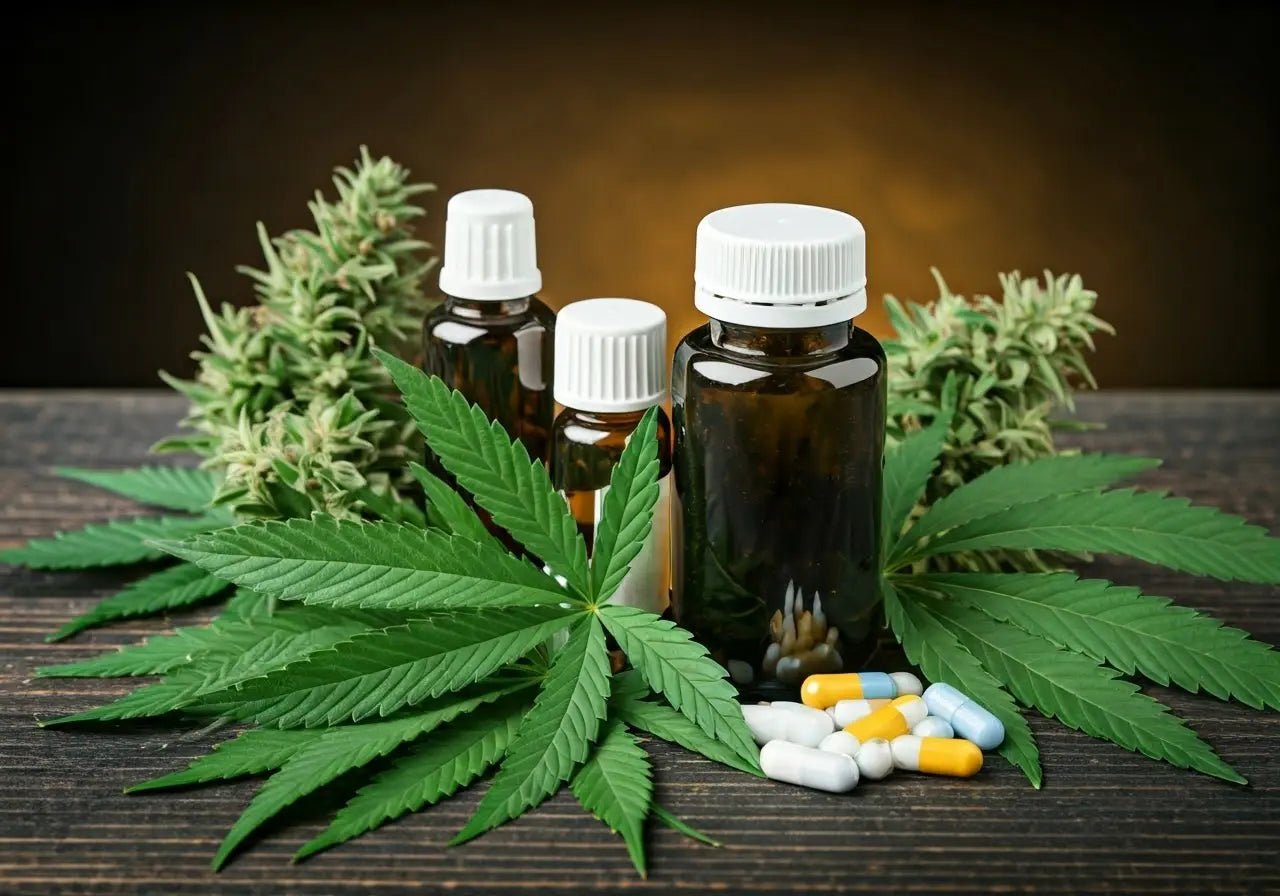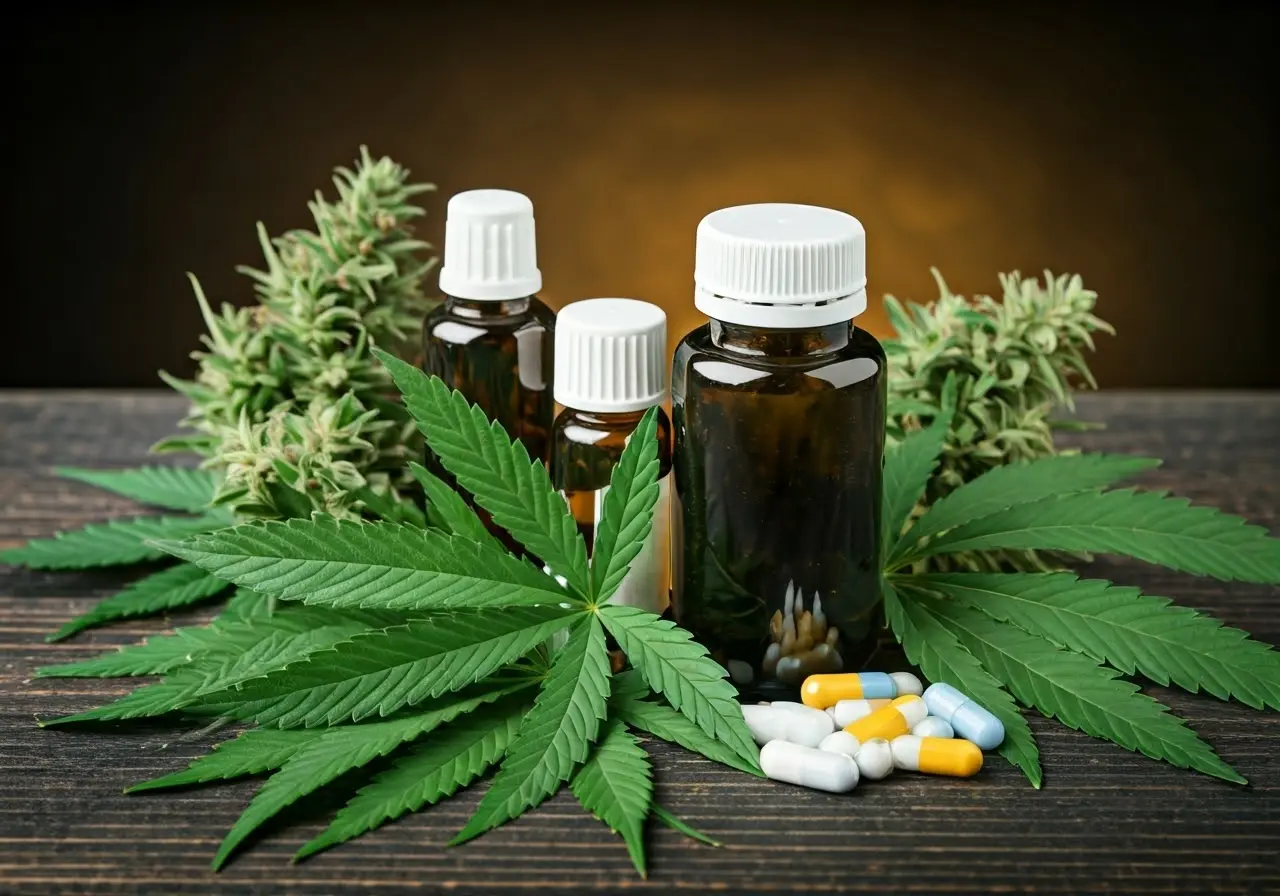
Cannabis overdose may not be as severe as overdoses caused by other substances, but it can still be an uncomfortable experience. This guide aims to walk you through understanding what a cannabis overdose is, its symptoms, and effective remedies to manage it safely.
What is a Cannabis Overdose?
A cannabis overdose, also known as ‘greening out,’ occurs when someone consumes an excessive amount of cannabis. This can lead to a range of symptoms that vary from mild to severe.
Understanding cannabis overdose is crucial for anyone who uses or considers using cannabis. Though the term ‘overdose’ may sound alarming, it’s important to clarify that a cannabis overdose is vastly different from overdoses associated with other substances like opioids or alcohol. Instead of leading to fatal consequences, a cannabis overdose is more about uncomfortable sensory and psychological experiences that result from consuming too much THC, the psychoactive component in cannabis. People who overindulge might find themselves feeling disoriented, anxious, or experiencing heightened paranoia. Usually, these effects subside with time and are seldom dangerously life-threatening. Yet, the discomfort can be significant, making it vital to understand the condition better to prevent and remedy it.
Cannabis, like any other recreational substance, requires mindful consumption. The diversity in cannabis products available today—from potent edibles to concentrated oils—has made it easier to ingest higher doses inadvertently. This is particularly true with edibles, where the effects take longer to onset, leading individuals to consume more when they don’t feel immediate effects. By grasping the nuances of how cannabis consumption affects our body, users can tailor their experiences to ensure safety and enjoyment without crossing the line into overdose territory.
Recognizing the Symptoms of Cannabis Overdose
Symptoms of a cannabis overdose can include dizziness, nausea, anxiety, and rapid heart rate. These symptoms can be uncomfortable but are rarely life-threatening.
One of the most challenging aspects of a cannabis overdose is the anxiety and panic that can accompany it. This often stems from the confusion and misinterpretations of bodily sensations, which can feel overwhelming. It’s not uncommon for users to feel trapped in their bodies, experiencing a heightened sense of fear that a severe physical issue is at play. Rapid heartbeats, while usually harmless, can exacerbate this perception, creating a vicious cycle of stress and paranoia. With insights from health professionals and anecdotes from users, it is clear that while these experiences are distressing, they are manageable with the right approach and knowledge.
Understanding the symptoms is the first step in effectively dealing with a cannabis overdose. A study on cannabis use shows that despite the unpleasantness, the symptoms are not indicative of permanent harm. With proper measures, users can mitigate these effects. Recognizing that judgment and perception might be altered during an overdose helps in navigating the experience without overwhelming anxiety.
Immediate Steps to Take During an Overdose
If you or someone else is experiencing a cannabis overdose, it’s important to stay calm, hydrate, and rest in a comfortable environment. Seeking medical attention is advisable if symptoms escalate.
The immediate reaction to realizing a cannabis overdose is occurring should be to create a calming environment. Often surrounded by familiar and comforting items, users will feel more grounded and less anxious. Remaining calm can be particularly challenging when symptoms peak, but it is the foundation for recovery. Stay nearby trusted companions who can offer reassurance. Hydration is another simple yet effective remedy. Sipping on water or herbal teas can aid in clearing the body of THC more quickly while providing a comforting routine. Additionally, consuming fluids can help counteract the dry mouth often experienced during such episodes.
Distraction can also play a crucial role in navigating a cannabis overdose. Whether it’s through listening to soothing music, engaging in light conversation, or focusing on deep breathing exercises, redirecting the mind away from intrusive and panic-inducing thoughts is beneficial. If symptoms persist or there’s uncertainty about severity, especially with symptoms like chest pain, contacting a medical professional is advisable. However, most of the time, supportive care and patience are sufficient to see someone through the effects until they diminish.
Natural Remedies to Alleviate Symptoms
Natural remedies like black pepper, lemon, and staying hydrated can help alleviate the symptoms of a cannabis overdose. These methods are easy to implement and can offer quick relief.
In the realm of natural remedies, black pepper has earned its place as a soothing antidote. Chewing on black peppercorns or merely smelling them is known to produce a grounding effect. This is due to the terpenes in pepper interacting with the same Human brain receptors as THC, helping reduce anxiety. Similarly, a piece of lemon or its zest can be a beneficial intake. Limonene, a major component found in lemon, can help uplift moods and counteract feelings of nausea. These simple household items can serve as immediate relief options without the need for specialized medicine.
Over time, many users have also turned to essential oils for their calming properties. Scents like lavender and chamomile, known for their relaxing effects, can be incorporated either through diffusion or by applying diluted oils to the wrists. The key to successful remedy usage is understanding one’s own body and stress responses. As individuals experience different severities and symptoms during a cannabis overdose, experimenting with various remedies can help discern which remedies work best for individual cases.
Preventing Cannabis Overdose in the Future
To avoid future incidents, consume cannabis in moderation, be aware of your tolerance levels, and consider consulting knowledgeable individuals before experimenting with new products.
Prevention is always the best strategy, especially when dealing with something as precious as health. Understanding your own tolerance levels and the potency of products is paramount. Consumers should begin with lower doses, particularly when trying new strains or products. Keeping track of quantities used and their effects can help tailor a safer personalized consumption style. Furthermore, consulting with experienced users or professional advice from dispensaries can offer insights into safer usage practices.
Education is an ongoing journey in understanding cannabis. With the rising diversity of cannabis products, continuous learning and awareness will help avoid accidental overdoses. As part of our commitment to safe consumption, we encourage readers to explore and engage in informative sessions and workshops available on platforms dedicated to cannabis education.
Navigating Cannabis Overdose with Confidence
Cannabis overdose can be a daunting experience, but with the right knowledge and remedies, it can be managed effectively. Always remember that moderation and responsibility are key to a safe and enjoyable experience with cannabis.








